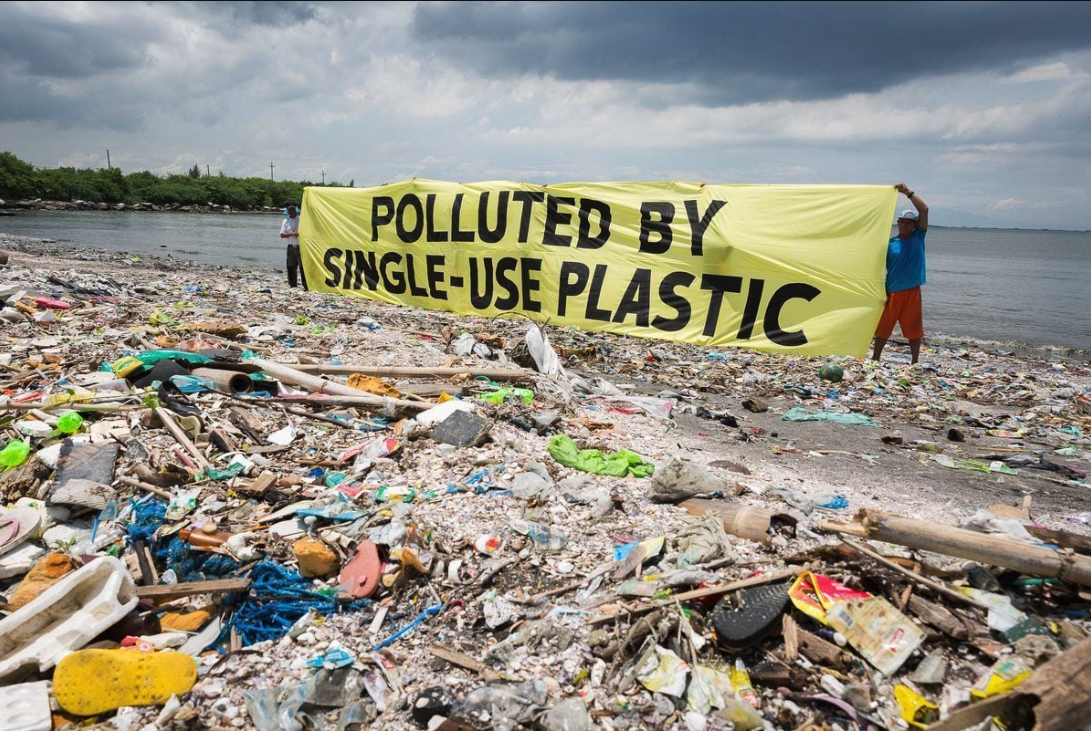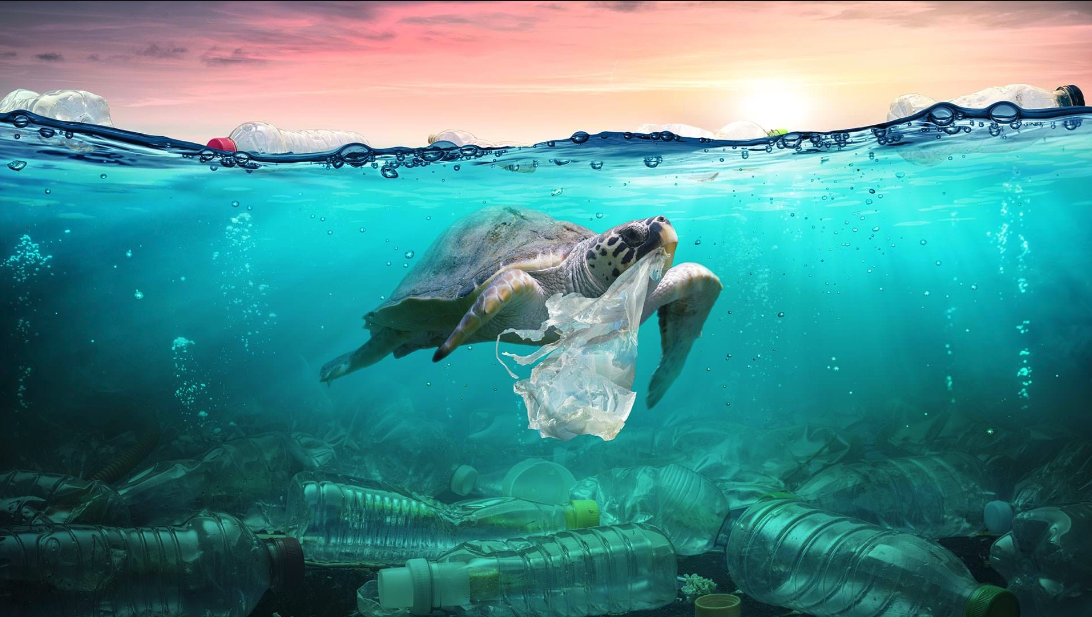The Big Picture –
By Glynn Wilson –
WASHINGTON, D.C. — In the early days of a movement created in the 1960s to begin a process to save the planet from the ravages of industrial pollution, a bunch of hippies, activists, some politicians and even a few corporations made big news in April, 1970, when the first Earth Day was designated on April 22.
Now 54 years later, while much progress has been made on a number of fronts, the challenge to preserve human, animal and plant life seems as daunting as ever.
The New York Times covered the event mostly from a local perspective in 1970, but acknowledged the involvement of millions of people across the country and the world.
Millions Join Earth Day Observances Across the Nation
The chosen theme for 2024 by the now mature EarthDay.org is to begin the process of ending the use of plastic “for the sake of human and planetary health” with a call for a 60 percent reduction in the production of all plastics by 2040.
Planet vs. Plastics is a call for widespread public awareness about the health risk of plastics, along with a call for rapidly phasing out all single use plastics. Advocates are urging a public push for a strong United Nation’s treaty on Plastic Pollution.
I’ve got to be honest with you, however.
Considering the extent to which plastic is in so many of the products we buy and consume, including our food and water as recent studies have shown, even bottled water, it is going to be incredibly difficult to do much about it in the short-term. But nothing will ever get done if we don’t start somewhere and vow to keep trying.
In some places around the country, including Prince Georges County, Maryland where I spend much of my time these days, all the grocery stores were required in recent months to stop giving away free plastic bags. I’m sure that’s a good thing for the long-term, but it created a quandary in the short-term. The bags from the Greenbelt Coop were the best bags around to re-use as trash bags. So I’ve found myself having to buy plastic trash bags.
This is not good. If the only solution is replacing one kind of plastic for another, the problem will never be solved.
Should we all start using paper bags instead? Paper bags are made from trees, and we need all the live, mature trees we can get to offset some of the carbon pollution being dumped into the atmosphere from the burning of fossil fuels to produce energy and drive our transportation system.
At least for now we have an administration in power in Washington that understands the problems we face and is taking up the challenge to pass new stronger regulations on chemical plants and to protect our drinking water and is also pushing tough new auto-emissions standards to combat climate change and promote electric vehicles.
But according to the New York Times, it could all come unraveled if the White House is “recaptured” by Donald Trump in November.
Responding to the threat, the Biden White House issued a special proclamation on Earth Day, 2024.
“More than 50 years ago today, some 20 million Americans came together across the country to demand that we prioritize our planet’s well-being. They came from every walk of life and political background, and were united around a common vision: to protect the Earth and our natural treasures for future generations,” the Biden administration says. “Their actions that day ignited an environmental movement and proved that nothing is beyond our capacity if we do it together. Today, we carry on their legacy by building a greener, more sustainable planet and, with it, a healthier, more prosperous Nation.”
“This work has never been more urgent,” the White House says. “Climate change is the existential crisis of our time; no one can deny its impacts and staggering costs anymore.”
But of course some politicians still deny it. Trump and the MAGA Republicans in power in the House are still calling it a “hoax,” and a number of polluting corporations and their paid lobbyists work to slow progress every day, spending millions, maybe billions of dollars, to counter information about the threats with anti-environment propaganda.
Yet this White House acknowledges the problems.
“We have seen historic floods from Vermont to Kentucky to California. Droughts and hurricanes are growing more frequent and intense,” this president says. “Wildfires are destroying entire communities and spreading harmful smoky haze for thousands of miles while temperatures keep reaching record highs.”
“Season after season, I have met with families who have lost everything to major storms, wildfires, and other climate disasters, and I have stood with the brave first responders and firefighters who sacrifice so much to protect their neighbors,” President Biden says. “Deforestation, nature loss, toxic chemicals, and plastic pollution also continue to threaten our air, lands, and waters, endangering our health, other species, and ecosystems. Our actions matter, and together we can protect our planet and our futures.”
According to the United Nations the world is producing 430 million tons of plastic every year. Two thirds of that is only used for a short period of time with wrappers for our chocolate bars, packets for our crisps and plastic utensils for lunch.
“But this brief life cycle has consequences,” the UN says. “Every day, the equivalent of over 2,000 garbage trucks full of plastic are dumped into our oceans, rivers and lakes. As a result, plastic pollution is set to triple by 2060 if no action is taken.”
To prevent this from happening, people need to drastically change their relationship with plastic.
First, we are producing too much plastic. Plastics are the largest, most harmful and most persistent fraction of marine litter, accounting for at least 85 per cent of total marine waste. Plastic packaging is the reason for the majority (36%) of plastic production.
Of that, 46 percent of plastic waste is buried in landfills, while another 22 percent is just floating around everywhere as litter. Only 17 percent is incinerated and 15 percent is collected for recycling, but less than 9 percent is actually recycled.
“This means that even if we are taking all the right steps, plastic is still coming back to haunt us,” the UN says.
Marine ecosystems and environments are under threat from plastic. Plastics account for 85 percent of marine litter.
“A plastic grocery bag has been found in the Mariana Trench – the deepest point in the ocean,” the UN reports. “Without urgent action, the estimated 11 million metric tons of plastic currently entering the ocean annually will triple in the next twenty years.”
And it’s not just the water quality that plastic impacts.
Plastic remnants have been found in digestive systems of many water species, including every marine turtle species and nearly half of all surveyed seabird and marine mammals.
The plastic crisis has environmental, health, economic and social impacts.
“We need to redesign both the products which use plastic, and how we use them in our daily lives,” the UN says.
The benefits of reducing plastic pollution aren’t confined to one of the goals of the 2030 agenda, the UN says. “Plastic touches many aspects of life on earth.”
While individuals can only do so much to make a difference with changes in their lifestyles, it is worth the effort, especially if you have kids and grandkids and expect a better world for them to live in than the one we face now.
___
If you support truth in reporting with no paywall, and fearless writing with no popup ads or sponsored content, consider making a contribution today with GoFundMe or Patreon or PayPal.















